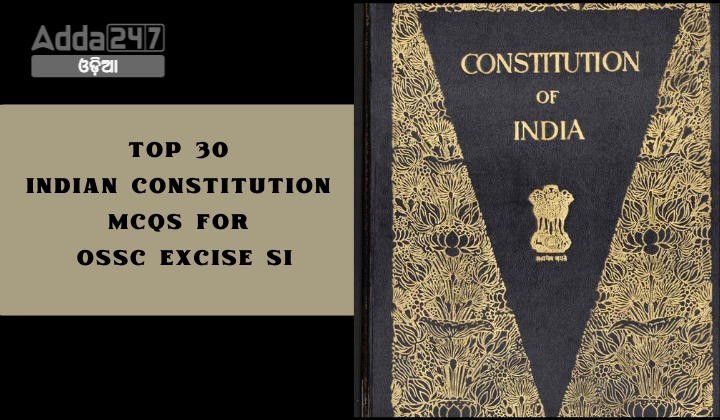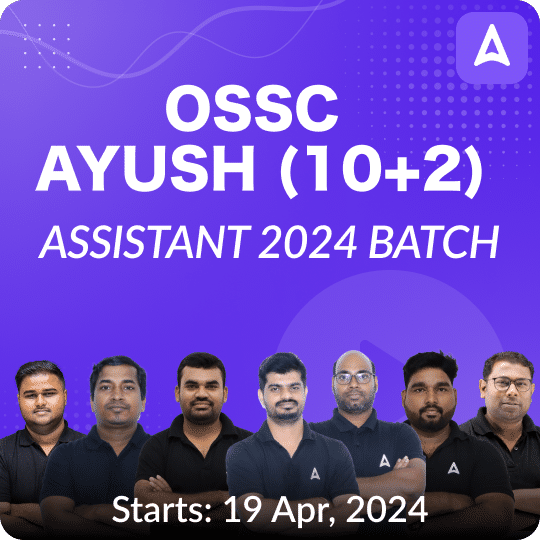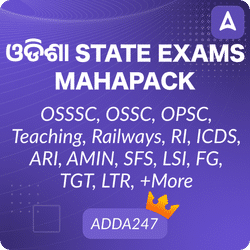Preparing for the Odisha Staff Selection Commission (OSSC) Excise Sub-Inspector (SI) exam requires a comprehensive understanding of various subjects, including the Indian Constitution. The Indian Constitution is a vital component of the OSSC Excise SI exam syllabus. To assist you in your preparation, here are the top 30 Multiple Choice Questions (MCQs) related to the Indian Constitution:
Top 30 Indian Constitution MCQs For OSSC Excise SI
- Which word is not included in the preamble of the Indian Constitution?
(A) Sovereign
(B) Socialist
(C) Democratic
(D) Indians
Answer: (D) Indians - Which statement is false?
(A) The Indian Constitution was implemented on November 26, 1949.
(B) The term “Secular” was added by the 42nd Constitution Amendment.
(C) The 42nd Constitutional Amendment took place in 1976.
(D) The Indian Constitution drew inspiration for social, economic, and political justice from the Russian Revolution.
Answer: (A) The Indian Constitution was implemented on November 26, 1949. - Which statement is incorrect regarding “Sovereign India”?
(A) India is not dependent on any country.
(B) India is not a colony of any other country.
(C) India can cede any part of its territory to another country.
(D) India is obligated to obey the UN in its internal affairs.
Answer: (D) India is obligated to obey the UN in its internal affairs. - K.M. Munshi was associated with which committee?
(A) Constitution Draft Committee
(B) Preamble Committee
(C) Public Accounts Committee
(D) None of the above
Answer: (A) Constitution Draft Committee - The Berubari Case is associated with which year?
(A) 1972
(B) 1976
(C) 1970
(D) 1960
Answer: (D) 1960 - What is the true meaning of “Secular”?
(A) All religions are equal in the eyes of the government.
(B) Special importance is given to a religion related to minorities.
(C) One religion is promoted by the government.
(D) None of the above
Answer: (A) All religions are equal in the eyes of the government. - What does “social equality” mean in the Indian Constitution?
(A) Lack of opportunities
(B) Lack of equality
(C) Equal opportunities for all sections of society
(D) None of the above
Answer: (C) Equal opportunities for all sections of society - Who referred to the preamble of the Indian Constitution as “The Keynote of the Constitution”?
(A) Ernest Barker
(B) Jawaharlal Nehru
(C) Dr. Ambedkar
(D) Nelson Mandela
Answer: (A) Ernest Barker - Which statement is true?
(A) The Supreme Court declared in the Berubari case that the preamble of the Constitution is not a part of it.
(B) The Supreme Court ruled in the Keshavanand Bharti case that the preamble of the Constitution is part of it.
(C) Both A and B
(D) None of the above
Answer: (C) Both A and B - The language of the preamble of the Indian Constitution is inspired by the constitution of which country?
(A) America
(B) Canada
(C) Australia
(D) Ireland
Answer: (C) Australia - Which ideal is NOT mentioned in the Preamble of the Indian Constitution?
(A) Justice
(B) Equality
(C) Prosperity
(D) Fraternity
Answer: (C) Prosperity - The Preamble of the Indian Constitution begins with the phrase:
(A) “We, the People of India…”
(B) “In the name of God…”
(C) “India, a Sovereign Socialist Secular Democratic Republic…”
(D) “To secure to all its citizens…”
Answer: (A) “We, the People of India…” - When was the Preamble of the Indian Constitution adopted?
(A) 26th January 1950
(B) 26th November 1949
(C) 15th August 1947
(D) 9th December 1946
Answer: (B) 26th November 1949 - Which ideal in the Preamble emphasizes the unity and integrity of the nation?
(A) Justice
(B) Liberty
(C) Equality
(D) Fraternity
Answer: (D) Fraternity - The Preamble of the Indian Constitution reflects the influence of which historical document?
(A) The United States Constitution
(B) The Magna Carta
(C) The Universal Declaration of Human Rights
(D) The Indian Independence Act, 1947
Answer: (A) The United States Constitution - Which schedule of the Constitution contains the list of languages recognized by the Constitution?
A. First Schedule
B. Second Schedule
C. Eighth Schedule
D. Ninth Schedule
Answer: C. Eighth Schedule - The Directive Principles of State Policy are enshrined in which part of the Constitution?
A. Part I
B. Part II
C. Part III
D. Part IV
Answer: D. Part IV - What is the minimum voting age in India?
A. 18 years
B. 21 years
C. 25 years
D. 16 years
Answer: A. 18 years - The President of India is elected by an electoral college consisting of-
A. Members of Parliament
B. Members of Legislative Assemblies
C. Elected members of both Houses of Parliament and Legislative Assemblies
D. Elected members of Legislative Assemblies and Governors
Answer: C. Elected members of both Houses of Parliament and Legislative Assemblies - What does Article 370 of the Constitution pertain to?
A. Special provisions for Jammu and Kashmir
B. Reservation for Scheduled Castes
C. Formation of new states
D. Directive Principles of State Policy
Answer: A. Special provisions for Jammu and Kashmir - When was the Constitution of India adopted?
A. 1947
B. 1950
C. 1952
D. 1960
Answer: B. 1950 - Who is known as the “Father of the Indian Constitution”?
A. Jawaharlal Nehru
B. B.R. Ambedkar
C. Mahatma Gandhi
D. Sardar Patel
Answer: B. B.R. Ambedkar - How many Schedules are there in the Indian Constitution?
A. 20
B. 25
C. 12
D. 8
Answer: A. 20 - The Preamble of the Indian Constitution begins with which words?
A. “We, the people of India…”
B. “In the name of God…”
C. “Justice, Liberty, Equality…”
D. “India, that is Bharat…”
Answer: A. “We, the people of India…” - What is the term of office for the President of India?
A. 3 years
B. 4 years
C. 5 years
D. 6 years
Answer: C. 5 years - How many Fundamental Rights are guaranteed by the Indian Constitution?
A. 4
B. 6
C. 8
D. 12
Answer: C. 8 - The Directive Principles of State Policy are enshrined in which part of the Indian Constitution?
A. Part III
B. Part IV
C. Part V
D. Part VI
Answer: B. Part IV - Who appoints the Chief Justice of India?
A. The President
B. The Prime Minister
C. The Chief Justice himself
D. The Parliament
Answer: A. The President - Which amendment of the Indian Constitution lowered the voting age from 21 to 18?
A. 42nd Amendment
B. 44th Amendment
C. 61st Amendment
D. 73rd Amendment
Answer: C. 61st Amendment - What is the minimum age for a person to become the Prime Minister of India?
A. 25 years
B. 30 years
C. 35 years
D. 40 years
Answer: C. 35 years





